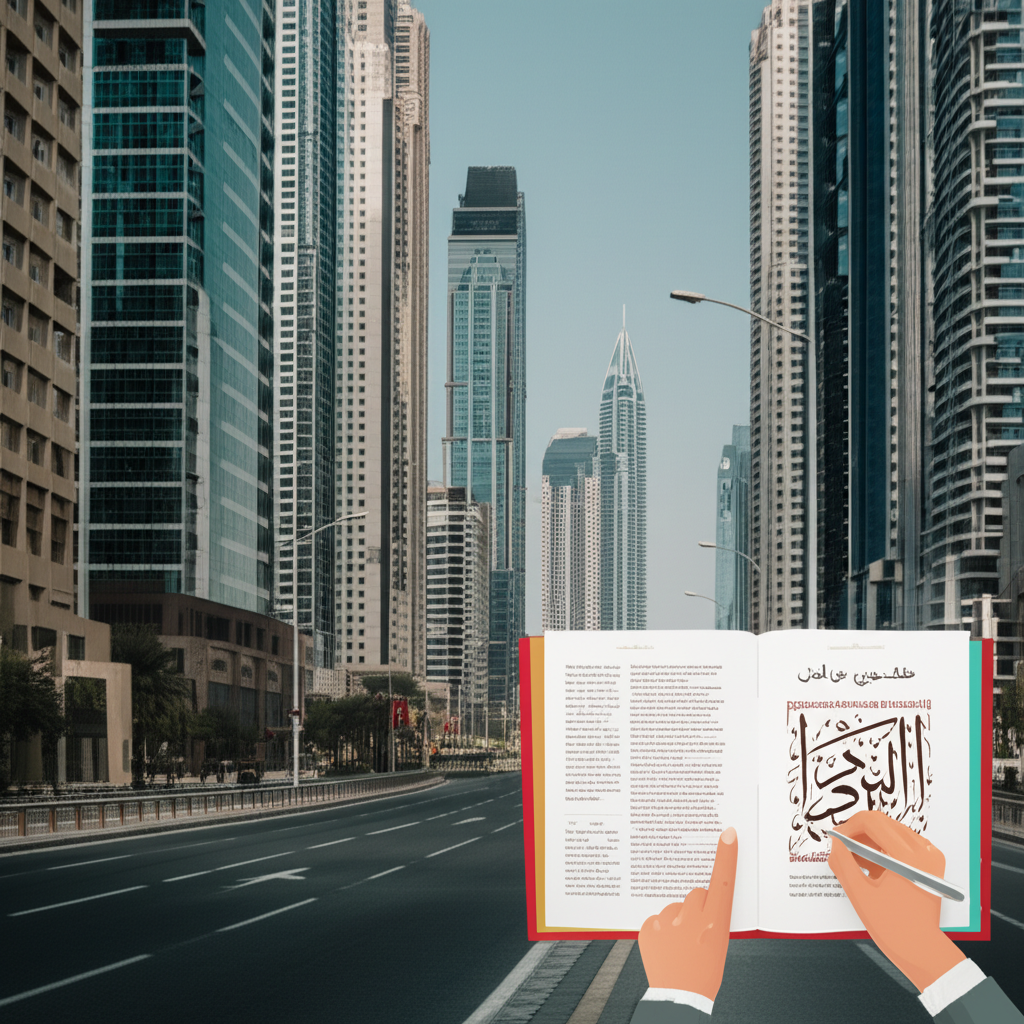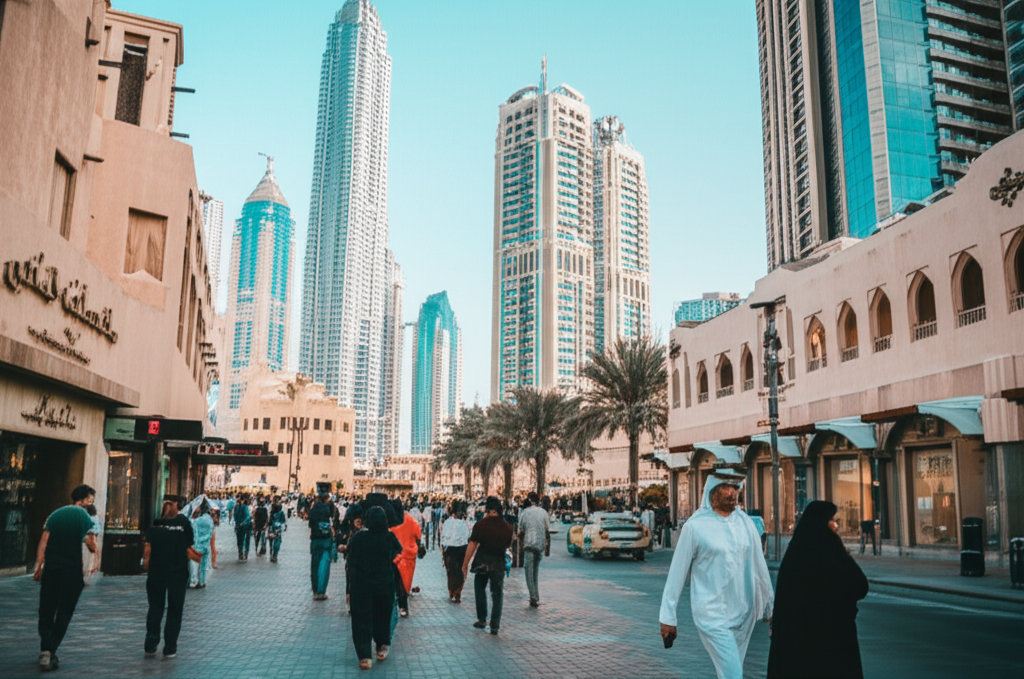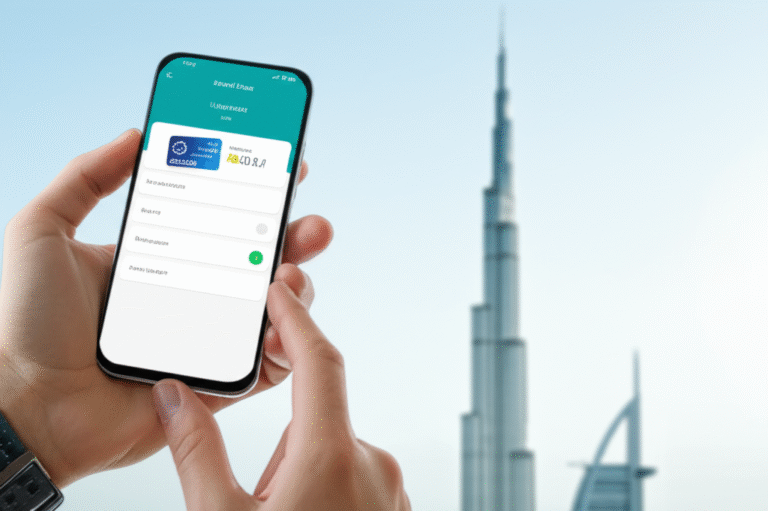The primary language spoken in Dubai is Arabic, but English is widely used and understood for daily communication, business, and tourism.
What Language Is Spoken in Dubai: Your Essential Guide to Staying Connected
Navigating a new city can feel overwhelming, especially when it comes to communication. If you’re new to Dubai, wondering about the languages you’ll hear and use, you’re in the right place. Many visitors and new residents worry about language barriers, but Dubai is incredibly welcoming and set up for international interaction. You’ll find that while Arabic is the official language, English is spoken everywhere, making it easy to get around, shop, and connect with people. This guide will break down the languages you’ll encounter and help you feel confident staying connected.
Contents
Understanding Dubai’s Linguistic Landscape
Dubai is a global hub, attracting people from all over the world. This diversity is reflected in its languages. While Arabic is the heart of the UAE, the city’s cosmopolitan nature means you’ll hear a symphony of tongues.
The Official Language: Arabic
Arabic is the official language of the United Arab Emirates, including Dubai. It’s the language of government, law, and formal education. You’ll see Arabic script on signs, official documents, and in media. The specific dialect spoken in Dubai is Gulf Arabic, which has its own unique vocabulary and pronunciation. However, don’t let this deter you; most locals are accustomed to communicating with non-Arabic speakers.
For those interested in learning some basic Arabic phrases, here are a few essentials:
- Hello: Marhaba (مرحباً)
- Thank you: Shukran (شكراً)
- Yes: Na’am (نعم)
- No: Laa (لا)
- Excuse me / Sorry: Afwan (عفواً)
- How are you?: Kaifa haluk? (كيف حالك؟)
The Lingua Franca: English
English is the undisputed language of business, tourism, and everyday transactions in Dubai. Due to the vast expatriate population and the city’s role as a global business center, English is spoken fluently by a significant portion of the population. You’ll find that almost everyone working in hospitality, retail, and customer service, as well as most residents, can communicate effectively in English.
From ordering food at a restaurant to asking for directions, booking a taxi, or managing your telecom services with providers like Etisalat or du, English will be your most useful tool. Most street signs, menus, and information boards are also in both Arabic and English.
Other Widely Spoken Languages
Given Dubai’s international demographic, you’ll encounter many other languages spoken daily. Some of the most common include:
- Hindi and Urdu: Spoken by a large portion of the South Asian expatriate community.
- Tagalog: Spoken by many Filipino residents.
- Malayalam, Tamil, Bengali, and Punjabi: Also widely spoken due to significant populations from India and Bangladesh.
- Farsi: Spoken by the Iranian community.
- Russian and French: Common among tourists and expatriates from these regions.
This linguistic diversity contributes to Dubai’s vibrant and multicultural atmosphere. While you might hear these languages around you, English remains the primary bridge for cross-cultural communication.
Essential Communication for Daily Life in Dubai

To make your life in Dubai easier, especially when it comes to staying connected with mobile phones and internet services, understanding how to communicate your needs in English is key. Telecom providers like Etisalat and du cater to a diverse customer base, so their services and support are largely geared towards English speakers.
Getting a SIM Card
When you arrive in Dubai, one of the first things you might want to do is get a local SIM card to stay connected. Both Etisalat and du offer prepaid and postpaid plans. The process is straightforward, and customer service representatives are readily available in English at airports, malls, and their retail outlets.
Required Documents for a SIM Card:
- For Tourists: Your passport and a copy of your visa.
- For Residents: Your Emirates ID and passport.
You can easily purchase SIM cards and recharge them at numerous locations, including supermarkets, convenience stores, and dedicated telecom shops. The instructions and interfaces for activating plans and checking balances are typically available in English.
Checking Your Mobile Balance and Data
Keeping track of your mobile balance and data usage is simple. Most telecom providers offer USSD codes (short codes you dial) and mobile apps for easy management.
Common Ways to Check Balance (usually in English):
- USSD Codes: Dial a specific number (e.g., 121# for Etisalat or 135# for du) to get your balance information via SMS. These codes are often multilingual, but English is standard.
- Mobile Apps: Download the Etisalat UAE or My DU app. These apps provide a comprehensive dashboard for your account, allowing you to check balances, manage plans, and top up easily, all in English.
- SMS: You can often text a keyword (like “BAL” or “BALANCE”) to a specific number to receive your balance details.
For the most up-to-date information on these codes and procedures, you can always visit the official websites of Etisalat UAE and du, which are fully available in English.
Using Public Transport and the Nol Card
Dubai’s public transport system, including the metro, buses, and trams, is efficient and easy to use. The Nol Card is your key to accessing these services. You can purchase and top up your Nol Card at any Dubai Metro station or RTA customer service center.
Nol Card Information:
- Types of Nol Cards: Silver, Gold, Blue, and Red.
- Purchasing: Available at all Dubai Metro stations and designated RTA customer service centers.
- Topping Up: Can be done at metro stations, RTA apps, and authorized sales agents.
All signage and announcements related to public transport are typically in both Arabic and English. The RTA (Roads and Transport Authority) website and apps are also excellent resources available in English for planning your journeys.
Dubai’s infrastructure and services are designed to be user-friendly for its diverse population and visitors. The prevalence of English ensures that most daily interactions, especially those related to essential services, are smooth and hassle-free.
Tips for Communication
- Speak Clearly: When speaking English, speak clearly and at a moderate pace.
- Use Simple Language: Avoid slang or complex phrases.
- Have Key Information Ready: If you need to communicate with a service provider, have your passport or Emirates ID handy.
- Utilize Apps: Download the official apps for your telecom provider (Etisalat UAE, My DU) and the RTA for easy access to services and information in English.
- Don’t Hesitate to Ask: Most people in Dubai are happy to help if you need clarification.
Resources for Staying Informed
To get the most accurate and up-to-date information on telecom services, public transport, and general living in Dubai, rely on official sources:
- Telecommunications and Digital Government Regulatory Authority (TDRA): For regulations and general information on telecom services in the UAE. You can find valuable consumer guides on their website, often available in English. https://www.tdra.gov.ae/en/
- Etisalat UAE Official Website: For all your mobile, internet, and home service needs.
- du Official Website: Your go-to for mobile, home, and business telecom solutions.
- Dubai RTA Website: For public transport information, Nol cards, and traffic updates.
Frequently Asked Questions about Languages in Dubai

What is the most spoken language in Dubai?
While Arabic is the official language, English is the most widely spoken language for daily communication, business, and tourism due to Dubai’s cosmopolitan nature and large expatriate population.
Do I need to speak Arabic to live or visit Dubai?
No, you do not need to speak Arabic to live in or visit Dubai. English is understood and spoken by almost everyone in the service industry, business, and by a large portion of the residents, making communication very easy.
Are street signs and menus in English in Dubai?
Yes, most street signs, shop names, menus in restaurants, and public transport information are displayed in both Arabic and English.
How can I check my mobile balance if I don’t speak Arabic?
You can easily check your mobile balance using your telecom provider’s mobile app (like Etisalat UAE or My DU), which are fully available in English. You can also use USSD codes which typically provide options in English, or send an SMS with keywords like “BAL” to the relevant number.
Are telecom customer service representatives fluent in English?
Yes, customer service representatives for major telecom providers like Etisalat and du are fluent in English and are trained to assist a diverse international clientele.
What is the best way to get around Dubai using public transport?
The best way to get around Dubai using public transport is with a Nol Card. You can purchase and top it up at any metro station. All information and guidance for using the metro, buses, and trams are available in English.
Conclusion
Dubai’s identity as a global crossroads means it embraces linguistic diversity. While Arabic is the official language, the pervasive use of English ensures that residents, expats, and tourists can navigate the city with ease, manage essential services like telecommunications, and connect with people from all walks of life. From getting a SIM card with Etisalat or du to using the efficient public transport system with your Nol Card, you’ll find that English is your key to a seamless experience. Embrace the multilingual environment, and rest assured that staying connected and informed in Dubai is straightforward, thanks to the widespread use of English and the city’s commitment to international accessibility.


